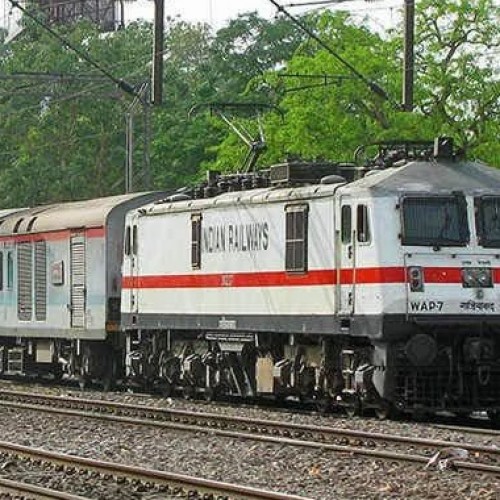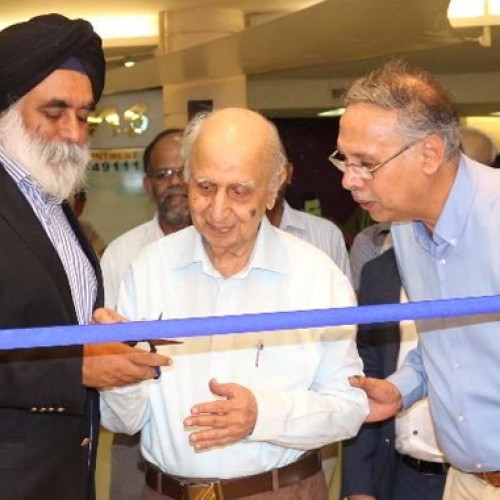‘Technology & Innovation to Emerge as Powerful Change Enablers’
EXECUTIVE CONVERSATION: An Interview with Rakesh Bansal, CEO, Amadeus, India & Subcontinent
Words by Prem Kumar
Post-Covid-19, as the focus shifts towards digital transformation, technology and innovation will emerge as powerful change enablers on the road to recovery, says Rakesh Bansal, CEO, Amadeus, India & Subcontinent. “In today’s evolving landscape and the coming times, travel providers need to use the latest technology and automation.” Amadeus sees technology playing a key role in helping the industry deliver a frictionless and safe traveller experience in areas such as health status indication, travel information and contact and touch-less solutions. The first lesson from the pandemic, according to Bansal, is that customer service has to be a priority. Read on excerpts of his interview to TnH:
Q. 2020 was an unprecedented year for the tourism sector. How was the year for Amadeus India?
There is no part of the world that has not been impacted by COVID-19. It was a challenging year, particularly for the travel and tourism industry. Amadeus’ business was impacted by the global drop in air traffic, just as that of our customers and partners. Although the pandemic has had a long-lasting effect on all of us, it also brought us closer as an industry.
Q. How did you cope with the situation caused by the pandemic, lead your people and manage your operations?
During the time of uncertainty and change with COVID-19, we were more focused than ever to ensure the health and safety of our employees, to continue supporting our customers, and to secure the continuity of our operations.
Despite the disruption, our commitment to providing customers with the best possible service, around the clock, was unwavering. This meant continuing to serve them as smoothly as possible, without interruption; centralizing our focus on our day-to-day operations to ensure stability.
COVID-19 caused an unprecedented situation in the travel industry which saw and is continuing to see a significant number of cancelled flights and booking changes. In the face of such disruption, our teams have worked around the clock to support our customers in re-accommodating travellers, while all the time maintaining a stable system. We have been working with our airline partners and subscribers to extend the validity of impacted PNRs from four days to up to one year which will help facilitate traveller servicing during this challenging time. We undertook several other measures as well.
Q. What new challenges and opportunities do you see for companies like yours in the post-Covid world?
We know technology and innovation will emerge as powerful change enablers on the road to recovery as corporations shift focus towards digital transformation. In today’s evolving landscape and the coming times, travel providers need to use the latest technology and automation, with contactless being a key requirement.
COVID-19 has unquestionably accelerated the adoption of new technologies within hotels. From replacing tangible restaurant menus and paper in-room compendiums with scannable QR codes to contactless hotel check-in capabilities, mobile room keys, touchless payments, and in-app ordering and appointments-booking, almost every aspect of the hospitality experience can now be accessed through guests’ own mobile devices, provided that hotels have adopted the right software.
With regards to airports, in the near future, we expect airports in India to introduce new technologies and a greater level of automation to all of their processes. Contactless technologies are likely to become commonplace so that passengers can move from check-in to boarding in a more safe and seamless way. This could range from contactless check-in kiosks to biometric security checks. We also expect airports to adopt a range of technologies to reduce crowds and queues within the terminal buildings, to meet new demands for social distancing. The introduction of off-site passenger handling services – such as check-in and bag drop services outside the airport terminal at railway stations, conference and sporting venues, and hotels – is likely to be one such development. Mobile check-in and bag drop stations could also be placed at an airport away from traditional check-in areas, such as at the airport entrance or in the car park, to add extra capacity on demand. Other developments could include the use of multi-lingual robots to help with passenger way-finding; AI-powered signage to direct passengers to avoid crowds; and the use of crowd management technologies to ensure social distancing policies are being followed. Many airports had already begun laying down a blueprint for digital transformation before Covid-19, but the pandemic will inevitably accelerate adoption, which is good news for passengers who will benefit from a more frictionless experience in the future.
Enabling safe travel is a top priority for the industry. Amadeus sees a key role for technology in helping the industry deliver a frictionless and safe traveller experience. We specifically see technology helping in three key areas such as health status indication, travel information and contact and touchless solutions.
Q. How will the pandemic influence your priorities for the New Year?
It will take a community response to get the world travelling again. We’re committed to working together with our customers, partners and the wider industry to rethink travel and reignite traveller confidence, ensuring it continues to be a key driver of global progress, positivity and prosperity. The success of the travel industry hinges on our collective ability to adapt, innovate, and collaborate to make travel easier, safer and more seamless than ever before.
Q. How do you see IATA’s NDC (New Distribution Capabilities) enabling the travel industry to transform the way air products are retailed to corporations, leisure and business travellers?
Despite the unprecedented crisis that we are still navigating, NDC remains just as important as it was before. In fact, NDC is even more crucial today, as it is one of the paths to recover and leapfrog into better retailing for the travel industry. Now is not the time to take the foot off the pedal. It’s time to double down, triple down, and focus on the path of the future.
COVID-19 has shown us that during disruption, travel companies deal with an extraordinarily high volume of transactions encompassing a complex set of servicing requirements. Ensuring consistency in API interpretation and implementation will mean we can handle this type of peak efficiently via NDC technology in the future. Additionally, it has become clearer that quick and efficient communications are critical in times of uncertainty and disruption. Fortunately, NDC can improve customer service and provide reassuring information relevant to passenger’s concerns, whilst still allowing airlines to outline the offer more clearly – it’s about enabling precise communication and sophisticated retailing techniques.
One of the partly fulfilled promises of the NDC standard is that it enables airlines to deliver new kinds of content and packages to travellers. This is a strength that will become even more valuable in the future. Now is the time for the travel industry to ask what these unique and personalized offers can look like, and how they can help passengers feel safe; maybe lounge access will become even more valuable, or perhaps travellers will want the assurance of priority boarding in staggered boarding times or extra space between passengers.
NDC is one, yet critical, an enabler in the larger vision of enhanced travel retailing. NDC is here to stay. It provides great benefits for airlines, travel agencies, corporations, travellers and the whole industry.
Q. How much progress have you made towards the adoption of NDC in India? Has the pandemic anyway affected your NDC adoption plans?
Across Asia, we are working with multiple airlines and travel sellers through our NDC [X] program. Airlines such as Japan Airlines, Cathay Pacific, Qantas, and Singapore Airlines are all on board with our NDC [X] program in order to make their content bookable by travel sellers through our Amadeus Travel Platform.
Most recently, we were very proud to announce our latest distribution deal with Singapore Airlines to bring their content via NDC to travel sellers. This includes ancillary services such as seat selection, excess baggage, special fares, and personalized merchandising offers for loyalty members and corporate travellers. The content will be available in the Amadeus NDC-enabled solutions used by agents today, providing a familiar and efficient booking environment. The Amadeus Travel Platform includes critical servicing functionalities that agents need, such as the cancellation, void, refund and modification of NDC bookings.
To support the NDC standardization and help travel agencies book content via NDC, we are continuing to focus on the integration of servicing capabilities in our NDC-enabled solutions, like cancellations and ticket changes.
NDC remains a priority, despite the pandemic. And don’t just take our word for it; our customers are saying the same too! Just recently, American Airlines published a blog post on our website entitled “NDC remains critical in challenging times.”
Q. In what ways do you think lessons and experiences of the pandemic are going to drive innovation in travel technology?
The past 10 months have seen some remarkable initiatives that remind us that crises can be both destructive and creative forces for innovation. The first thing that we’ve learnt is that customer service has to be a priority. When global air travel restarts, travellers are likely to be more sensitive than ever as to how their flight reservations will be serviced; we must keep this in mind while developing the NDC standard. Selling a ticket via NDC technology isn’t enough – we need to develop solutions that make it easy for those flights to be cancelled, changed, or modified (perhaps several times). Today when quick and efficient communications are critical, NDC standard can improve customer service. At times like these, this feature is worth investing in.
COVID-19 has acted as an accelerator of change, with travellers now demanding new services and technology. Today digital is at the forefront more than ever, in terms of contactless tech, online payments, chatbots, automation, machine learning etc.
In travel, one opportunity for creativity has been the change in travellers’ expectations. There is now much more demand for self-service at the airport, meaning the potential applications of biometric technologies have increased dramatically. Additionally, there is also a greater need for destination-specific health information. The demands on the travel industry are changing and these new expectations extend to how people pay for travel.
At Amadeus, we’ve spoken about the benefits of a transition to digital payments for quite some time, often in the context of its potential to enable truly frictionless payments for travellers. The present growth in the popularity of digital payments presents us with a once in a generation opportunity to harness new technology that brings down the cost of payments and improves the payment experience. Helping people to pay in the way that they feel most comfortable is just one step on the journey towards a frictionless travel experience.
Informed by over 6,000 travellers across France, Germany, India, Singapore, UK and the US, a recent global traveller study commissioned by Amadeus found that technology plays a crucial role in supporting recovery, as over 4 in 5 (84%) travellers said the technology would increase their confidence to travel in the next 12 months by addressing concerns around mixing with crowds, social distancing and physical touch-points.
The priorities Indian travellers wanted from technology were for it to:
- Minimize face-to-face or physical contact with others
- Reduce queues and congestion in public places
- Protect financial data and personal information
- Minimize the requirement for physical documents
Hence, mobile applications, self-service portals, contactless payments and transactions etc. would be the focus in the coming times. The proliferation of smartphones, the internet, the advent of 5G and technology-driven tools and platforms will be acting as a catalyst for speedy digitisation of the travel sector.
Q. What has been your strategy to maintain your brand loyalty amongst customers?
Our priority has always been to empower Amadeus subscribers with the latest and most technically advanced automated products and customized solutions. We have helped in automation and improving efficiencies through Amadeus Selling Platform Connect and value-added cutting edge technology solutions, that has enhanced our brand loyalty.
Our brand loyalty strategy involves working closely with our partners, to provide them with our unstinting 24X7 support and solutions that improve their efficiency, reduce workload. We also offer technology that helps them ensure enhanced traveller experiences.
Amadeus has been collaborating with its subscribers, partners and the travel industry’s movers and shakers to rethink the future of travel and has provided solutions to help the partners sail through unprecedented times, further strengthening our brand loyalty.
You might also like
Mumbai-Delhi route may soon get new faster Rajdhani Express train
The railways is planning to introduce a brand new and faster Rajdhani Express on the Mumbai-Delhi line, the third Rajdhani train on the route, in the next few months, senior
Cox & Kings opens Holiday Club stores across four high street malls in New Delhi
Cox & Kings Ltd., the leading tour operator with operations in 22 countries across continents, has opened Holiday Club stores across high street malls in New Delhi today to cater
Ferrari World Abu Dhabi Officially Opens its Latest Rollercoaster “Turbo Track”
The new rollercoaster promises riders a heart-pounding glimpse into the world of Ferrari test drivers. The highly-anticipated rollercoaster “Turbo Track” was officially launched at Ferrari World Abu Dhabi today. The








